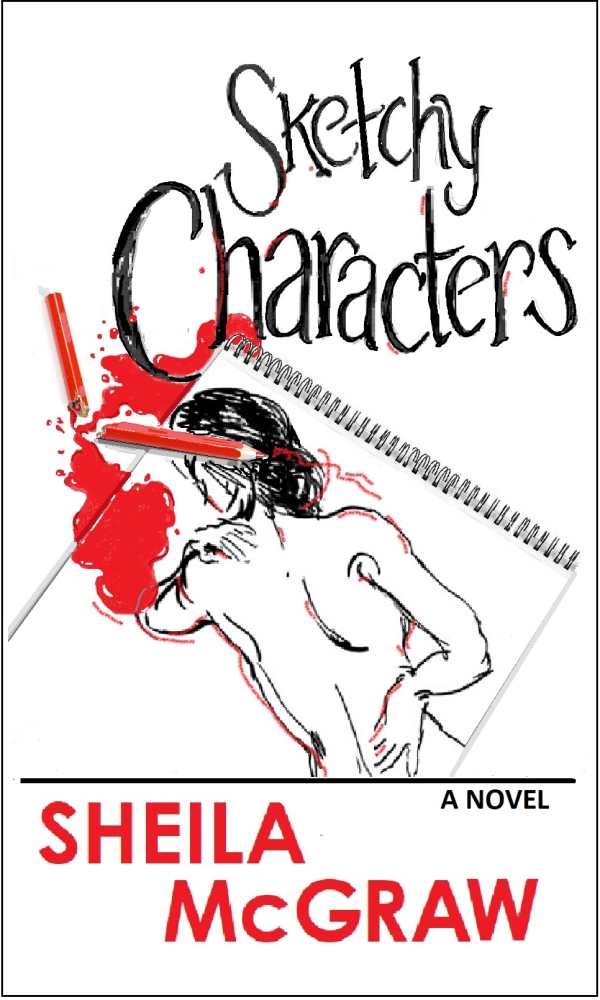Sketchy Characters
In the serpentine mystery novel Sketchy Characters, a woman adopts a blurry definition of what’s righteous to triumph over threats.
In Sheila McGraw’s macabre mystery novel Sketchy Characters, a woman investigates her friend’s murder in the aftermath of a Texas flood.
When rising water destroys the historical building that Marilyn helps to manage, she’s rendered out of luck. With only a backpack and her work as a model for artists to sustain her, she finds refuge at her friend, Fran’s, apartment. But Fran has gone missing, and the faux-New Age gurus who party next door are the prime suspects. News reports on cold cases and the disappearance of a local heiress deepen the mystery.
The story is populated by unconventional characters from Marilyn’s art class and Fran’s building; it includes vibrant details about the damage wrought by the storm. Its precarious setting results in tension as Marilyn searches for her friend; it also pull’s people together in the storm’s aftermath. But while the book’s early scenes do an able job of imparting a sense of danger, the book meanders too much before arriving at its main mystery: that of Fran’s death.
There are too many underdeveloped tangents in the story. These include the start of a romance; Marilyn’s dead aunt’s opinions; the attentions of men looking for a date; background thoughts about the overworked police, who miss crucial details when it comes to investigating violence against women; and Marilyn’s sex appeal. Few of these elements contribute to the discovery of the truth. Still, some of the novel’s secondary characters, including potential suspects and a troubled lawyer, are bemusing; their characterizations riff on varieties of sketchiness.
The text is more focused when it comes to the plot twist of Marilyn witnessing a double murder. Because the related events reveal her moral ambiguity, her choices about what to do with the new information result in interesting quandaries. She comes to seem more complex than originally presented: though she’s upset, she’s fine with stealing from a crime scene for her own benefit. The evidence gathered as a result of this gives her leverage, and her amateur deductions are a source of entertainment.
Marilyn’s bombastic encounters result in absurdism and satisfying humor. The menaces she encounters are tamed by these sensibilities, and even a serial killer’s gruesome behaviors fall to the backdrop as her quirky exchanges, and an outlandish instance of collusion, capture audience attention instead. Late passages concerned with Marilyn’s childhood traumas compromise this light tone, though, as does the book’s abrupt, time-jumping ending.
In the serpentine mystery novel Sketchy Characters, a woman adopts a blurry definition of what’s righteous to triumph over threats.
Reviewed by
Karen Rigby
Disclosure: This article is not an endorsement, but a review. The publisher of this book provided free copies of the book and paid a small fee to have their book reviewed by a professional reviewer. Foreword Reviews and Clarion Reviews make no guarantee that the publisher will receive a positive review. Foreword Magazine, Inc. is disclosing this in accordance with the Federal Trade Commission’s 16 CFR, Part 255.

